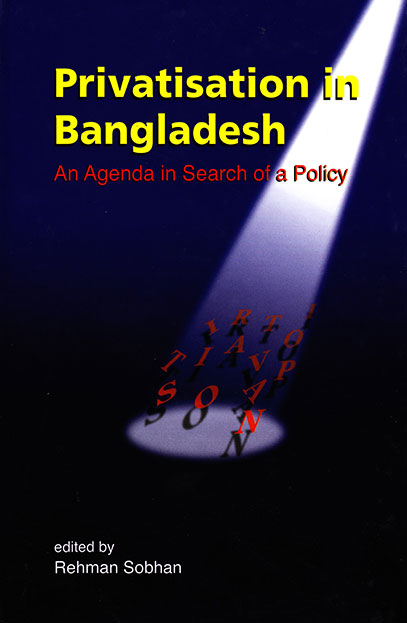
- Shop
- Privatisation in Bangladesh: An Agenda in Search of a Policy
Privatisation in Bangladesh: An Agenda in Search of a Policy
| Language: English |
Tags :
Book Info
In recent years the process of privatisation of State Owned Enterprises (SOEs), spanning more than two decades, has come under increasing scrutiny by both experts and civil society in Bangladesh. The conceptual framework of privatisation of SOEs, the efficacy of institutions to carry out privatisation-related reforms and operationalisation of the privatisation policies have come to be questioned by both experts, and the general public. Carried out ostensibly to improve management quality and efficiency of operation, the policy of privatisation has according to many deviated from its objectives. The present volume is an attempt to assess the privatisation experience of Bangladesh from a number of important dimensions and presents an in-depth investigation into the limitations of the privatisation policy. The papers in the present volume argue that there is little evidence at hand to suggest that privatisation of SOEs has yielded significant benefits by way of enhanced output, employment, productivity, profitability, investment or innovations. Based on the insights drawn from a number of case studies, it is argued that the design and implementation of privatisation in Bangladesh was flawed, to begin with, and thus encouraged the intrusion of vested interests. The papers in the volume point out that the performance of SOEs has deteriorated not only because of general degeneration in governance and deprecation in managerial capacity in the SOEs but also because of the absence of appropriate policy guidelines about their fate. The papers point out that encouragement of any major entrepreneurial initiative through SOEs is not on the card in present-day Bangladesh; at the same time, indiscriminate privatisation of all SOEs, as argued by multilateral and bilateral development partners, will possibly be inimical to the interests of ordinary citizens of Bangladesh. The point is made that problems of market failure or inadequate market response, as well as the crisis in governance, demand comprehensive and creative resolution. According to the authors these structural concerns, which afflict both the state and the private sector, need to be addressed within a long-term policy demarcating the role of the public and private sectors within a realistic time perspective. The central message of the present volume is that Bangladesh should move away from the present ideologically driven agenda for privatisation which seems to largely originate from external sources and should get on with the task of formulating an indigenously designed, pragmatic policy for both privatisation and SOE reform. Contributors: M M Akash Tanweer Akram Lenin Azad Selim Raihan Rehman Sobhan

Rehman Sobhan
Rehman Sobhan, a recipient of Shadhinata Puraskar, Bangladesh’s highest civilian award, is founder and chairman, Centre for Policy Dialogue (CPD). He served as a member of the first caretaker government in Bangladesh in 1991 and a member, Bangladesh Planning Commission 1972–75. He was a Professor, Economics Department, Dhaka University, and Director General, BIDS, Bangladesh. He was actively associated with the Bengali nationalist movement during the 1960s and the Bangladesh liberation struggle in 1971. His publications include Challenging the Injustice of Poverty: Agendas for Inclusive Development in South Asia (2010), Untranquil Recollections: The Years of Fulfilment (2015) and Untranquil Recollections: Nation Building in Post-Liberation Bangladesh (2021).


